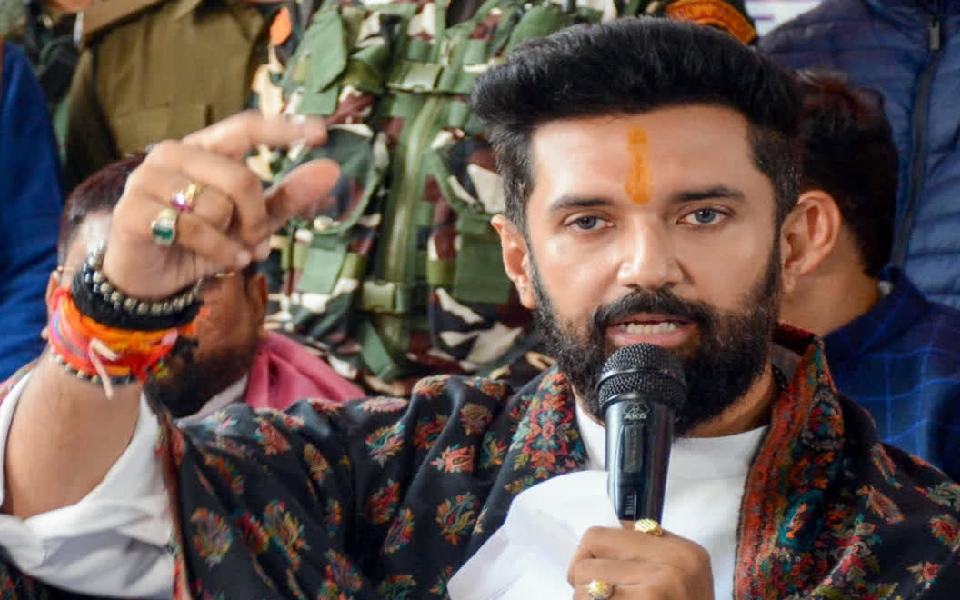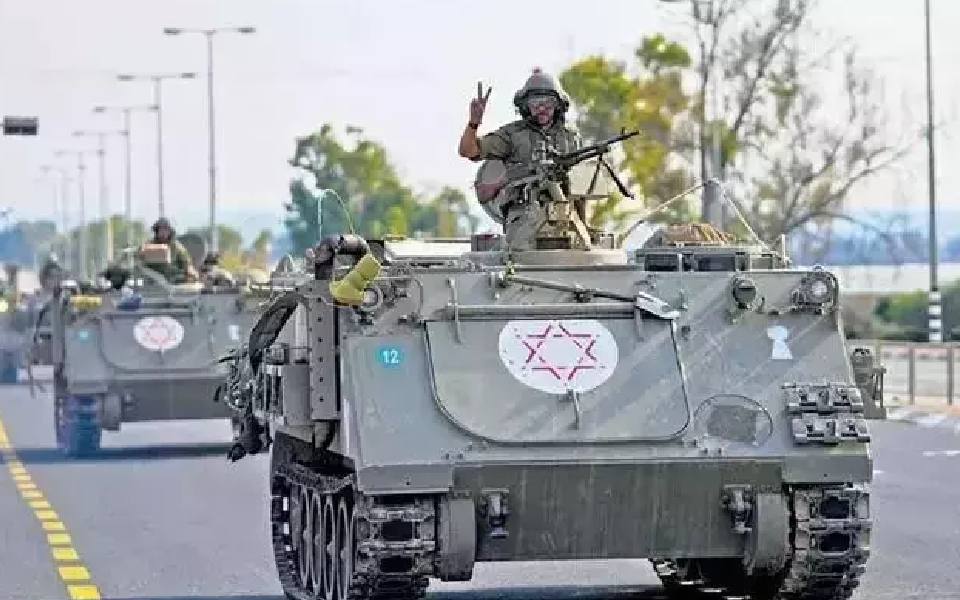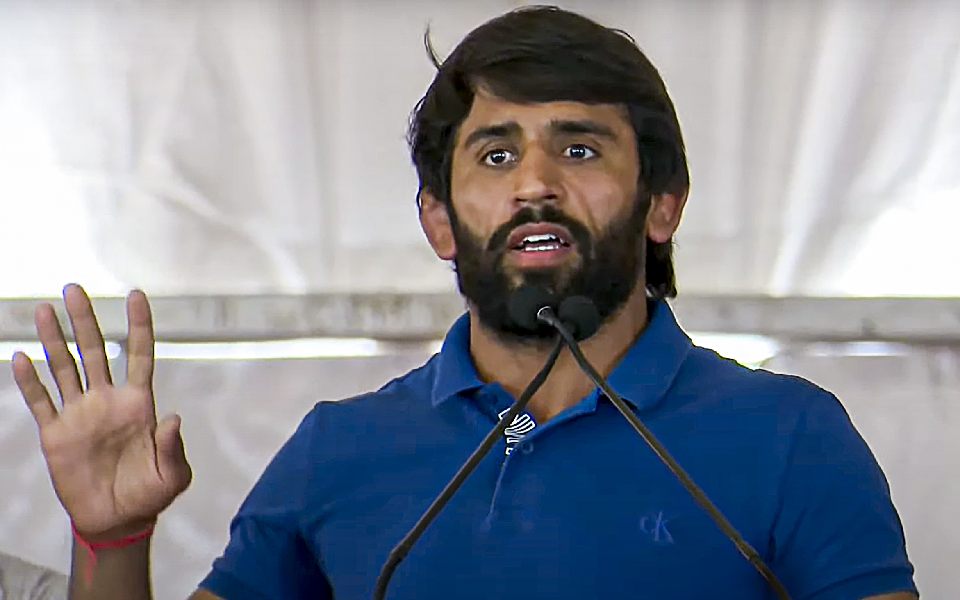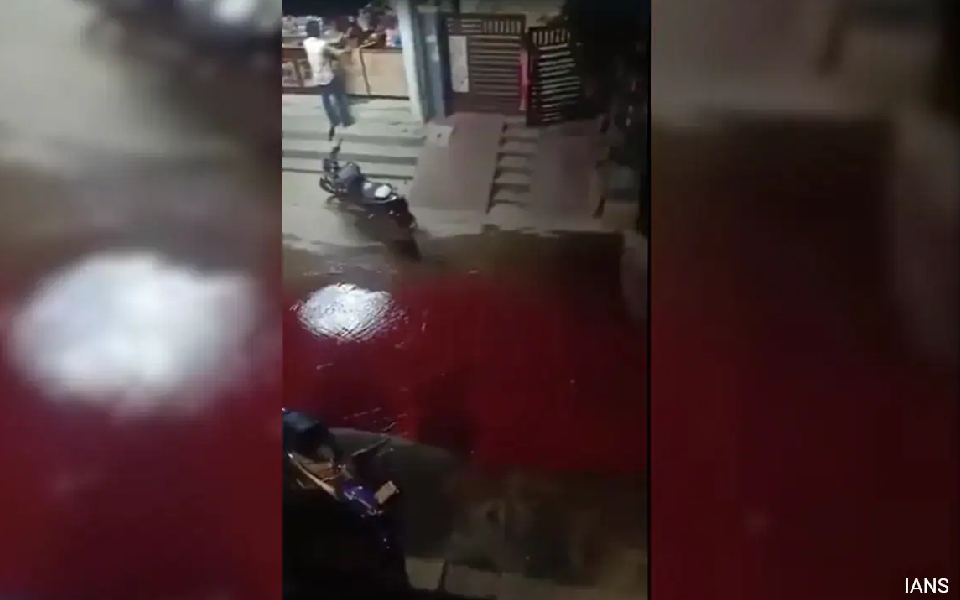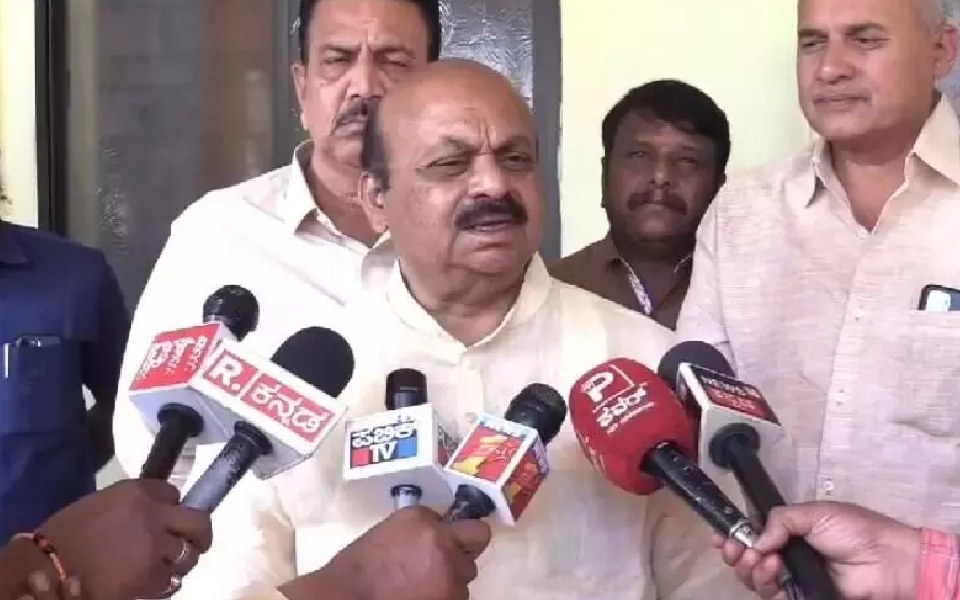New Delhi, Oct 7: Union minister Chirag Paswan on Monday said his Lok Janshakti Party (Ram Vilas) wants to fight the assembly election in Jharkhand and a final decision will be taken soon on whether it would contest under the NDA alliance or alone.
Paswan said he met Home Minister Amit Shah on Sunday where the upcoming state assembly election in Jharkhand was discussed. He said the meeting was very positive.
"I met Home Minister Amit Shah yesterday. We discussed the current political situation in the country and also the upcoming assembly elections. Jharkhand was also discussed," Paswan told reporters here on the sidelines of a FICCI event.
Paswan, who is the Union food processing minister, said his party did not fight the assembly elections in Haryana and J-K which were held recently, but supported the BJP.
"Jharkhand mein bhi meri soch yahi hai ki hum log NDA ke saath mil kar chunav ladein. (I am of the view that we should fight Jharkhand assembly election under the NDA alliance)," Paswan said, adding that a final decision will be taken in 2-4 days.
Elections to the 81-member Jharkhand assembly are due later this year, and the dates are expected to be announced soon.
"The state party unit wants to fight. Let's see, whether we fight under the alliance or alone, how the situation emerges. I had a very positive meeting with the Union Home Minister. The scenario will be clear within the next few days," he said.
Asked how many seats his party has sought, Paswan said he will not make it public, conforming with the coalition principles.
On exit poll results of Haryana and J-K, he expressed confidence that the NDA will form the government.
Regarding the demand for Bharat Ratna for his late father Ram Vilas Paswan from certain sections, the minister said as a son he has always wished for this honour.
"Koi cheez agar maang ke mili toh kya mili," Chirag said, adding that his father would "definitely one day get the respect he deserves and that too without seeking".
Let the Truth be known. If you read VB and like VB, please be a VB Supporter and Help us deliver the Truth to one and all.
Beirut, Nov 26: Israeli Prime Minister Benjamin Netanyahu said Tuesday that he would recommend his cabinet adopt a United States-brokered ceasefire agreement with Lebanon's Hezbollah, as Israeli warplanes struck across Lebanon, killing at least 23 people.
The Israeli military also issued a flurry of evacuation warnings — a sign it was aiming to inflict punishment on Hezbollah down to the final moments before any ceasefire takes hold. For the first time in the conflict, Israeli ground troops reached parts of Lebanon's Litani River, a focal point of the emerging deal.
In a televised statement, Netanyahu said he would present the ceasefire to Cabinet ministers later on Tuesday, setting the stage for an end to nearly 14 months of fighting.
Netanyahu said the vote was expected later Tuesday. It was not immediately clear when the ceasefire would go into effect, and the exact terms of the deal were not released. The deal does not affect Israel's war against Hamas in Gaza, which shows no signs of ending.
The evacuation warnings covered many areas, including parts of Beirut that previously have not been targeted. The warnings, coupled with fear that Israel was ratcheting up attacks before a ceasefire, sent residents fleeing. Traffic was gridlocked, and some cars had mattresses tied to them. Dozens of people, some wearing their pajamas, gathered in a central square, huddling under blankets or standing around fires as Israeli drones buzzed loudly overhead.
Hezbollah, meanwhile, kept up its rocket fire, triggering air raid sirens across northern Israel.
Lebanese officials have said Hezbollah also supports the deal. If approved by all sides, the deal would be a major step toward ending the Israel-Hezbollah war that has inflamed tensions across the region and raised fears of an even wider conflict between Israel and Hezbollah's patron, Iran.
The deal calls for a two-month initial halt in fighting and would require Hezbollah to end its armed presence in a broad swath of southern Lebanon, while Israeli troops would return to their side of the border. Thousands of Lebanese troops and UN peacekeepers would deploy in the south, and an international panel headed by the United States would monitor all sides' compliance.
But implementation remains a major question mark. Israel has demanded the right to act should Hezbollah violate its obligations. Lebanese officials have rejected writing that into the proposal. Israel's Defense Minister Israel Katz insisted on Tuesday that the military would strike Hezbollah if the U.N. peacekeeping force, known as UNIFIL, doesn't provide “effective enforcement” of the deal.
“If you don't act, we will act, and with great force,” Katz said, speaking with UN special envoy Jeanine Hennis-Plasschaert.
The European Union's top diplomat, Josep Borrell, said Tuesday that Israel's security concerns had been addressed in the deal also brokered by France.
“There is not an excuse for not implementing a ceasefire. Otherwise, Lebanon will fall apart,” Borrell told reporters in Italy on the sidelines of a Group of Seven meeting. He said France would participate on the ceasefire implementation committee at Lebanon's request.
Bombardment of Beirut's southern suburbs continues
Even as Israeli, US, Lebanese and international officials have expressed growing optimism over a ceasefire, Israel has continued its campaign in Lebanon, which it says aims to cripple Hezbollah's military capabilities.
An Israeli strike on Tuesday levelled a residential building in the central Beirut district of Basta — the second time in recent days warplanes have hit the crowded area near the city's downtown. At least seven people were killed and 37 wounded, according to Lebanon's Health Ministry.
Three people were killed in a separate strike in Beirut and three in a strike on a Palestinian refugee camp in southern Lebanon. Lebanese state media said another 10 people were killed in the eastern Baalbek province. Israel says it targets Hezbollah fighters and their infrastructure.
Earlier, Israeli jets struck at least six buildings in Beirut's southern suburbs. One strike slammed near the country's only airport, sending plumes of smoke into the sky. The airport has continued to function despite its location on the Mediterranean coast next to the densely populated suburbs where many of Hezbollah's operations are based.
Israeli military spokesman Avichay Adraee issued evacuation warnings for 20 buildings in the suburbs, as well as a warning for the southern town of Naqoura where UNIFIL is headquartered.
UNIFIL spokesperson Andrea Tenenti told The Associated Press that peacekeepers will not evacuate.
Other strikes hit in the southern city of Tyre, where the Israeli military said it killed a local Hezbollah commander.
The Israeli military also said its ground troops clashed with Hezbollah forces and destroyed rocket launchers in the Slouqi area on the eastern end of the Litani River, a few kilometres from the Israeli border.
Previous ceasefire hopes were dashed
Under the ceasefire deal, Hezbollah would be required to move its forces north of the Litani, which in some places is about 30 kilometers (20 miles) north of the border.
A ceasefire between Israel and Hezbollah, the strongest Iranian-backed force in the region, would likely significantly calm regional tensions that have led to fears of a direct, all-out war between Israel and Iran. It's not clear how the ceasefire will affect the Israel-Hamas war in Gaza. Hezbollah had long insisted that it would not agree to a ceasefire until the war in Gaza ends, but it dropped that condition.
Hezbollah began firing into northern Israel, saying it was showing support for the Palestinians, a day after Hamas carried out its Oct. 7, 2023, attack on southern Israel, triggering the Gaza war. Israel returned fire on Hezbollah, and the two sides have been exchanging barrages ever since.
Israel escalated its campaign of bombardment in mid-September and later sent troops into Lebanon, vowing to put an end to Hezbollah fire so tens of thousands of evacuated Israelis could return to their homes.
More than 3,760 people have been killed by Israeli fire in Lebanon the past 13 months, many of them civilians, according to Lebanese health officials. The bombardment has driven 1.2 million people from their homes. Israel says it has killed more than 2,000 Hezbollah members.
Hezbollah fire has forced some 50,000 Israelis to evacuate in the country's north, and its rockets have reached as far south in Israel as Tel Aviv. At least 75 people have been killed, more than half of them civilians. More than 50 Israeli soldiers have died in the ground offensive in Lebanon.
After previous hopes for a ceasefire were dashed, U.S. officials cautioned that negotiations were not yet complete and noted there could be last-minute hitches that delay or destroy an agreement.
“Nothing is done until everything is done,” White House national security spokesman John Kirby said.
While the ceasefire proposal is expected to be approved if Netanyahu brings it to a vote in his security Cabinet, one hard-line member, National Security Minister Itamar Ben-Gvir, said he would oppose it. He said on X that a deal with Lebanon would be a “big mistake” and a “missed historic opportunity to eradicate Hezbollah.”

